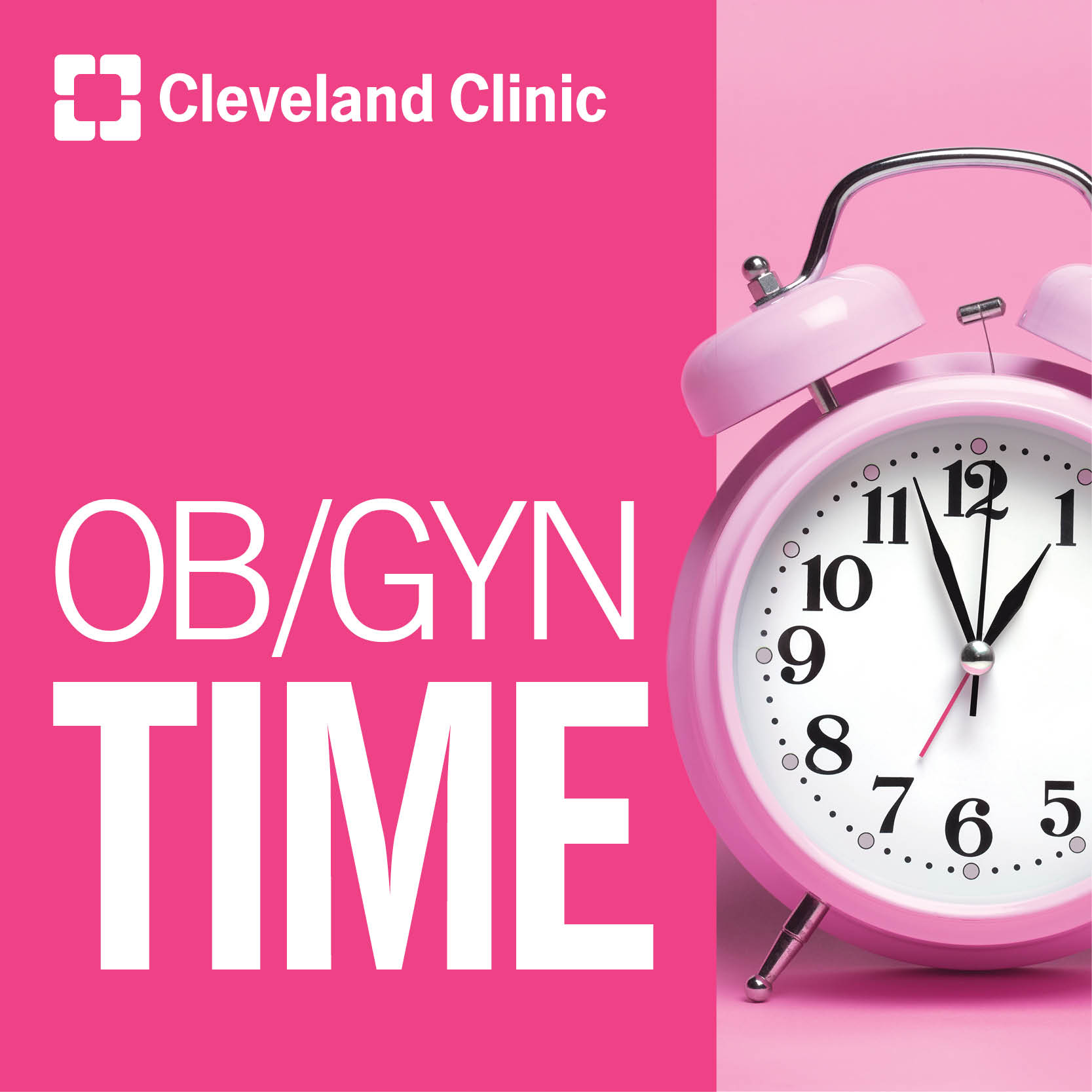
Ob/Gyn Time
A Cleveland Clinic podcast covering all things women's health from our host, Erica Newlin, MD. You'll hear from our experts on topics such as birth control, pregnancy, fertility, menopause and everything in between. Listen in to better understand your health and be empowered to live your best.
Subscribe:

Featured Episode
Pediatric Gynecology: What Parents Should Know
Pediatric and adolescent gynecology often raises questions for parents - and in this episode of Ob/Gyn Time, Erica Newlin, MD, sits down with Erin Isaacson, MD, Cleveland Clinic's first fellowship-trained pediatric and adolescent gynecologist, to break it all down. Together, they explore what pediatric gynecology is, when a child or teen may benefit from a visit, and common conditions seen in younger patients.
Play NowAll Ob Gyn Time Episodes
January 12, 2026
Navigating Menopausal Stages and Treatment
Menopause impacts millions every year, but care isn't one-size-fits-all. In this episode of Ob/Gyn Time, host Erica Newlin, MD, talks with Rachel Novik, DO, about what to expect during menopause and perimenopause, common symptoms, and the latest treatment options - from hormone therapy to non-hormonal approaches. If you're navigating perimenopause, menopause or want to learn more, this episode offers practical insights to help you feel informed and empowered.
Play NowNovember 3, 2025
Prenatal Diagnosis: Ultrasound & Genetic Testing
For the final episode of the season, Courtney Stephenson, DO, and Marissa Coleridge, MS, CGC, break down everything you need to know about ultrasound and genetic testing during pregnancy. Whether you're expecting, planning for pregnancy, or simply want to understand these important screening tools, this episode offers expert insights into how ultrasounds and genetic tests work, what they can detect, and how they help ensure healthy outcomes for you and your baby.
Play NowOctober 5, 2025
Second and Third Trimester Concerns
On this episode Kathryn Goebel, MD, Tammy Parker, MD, and host, Erica Newlin, MD, share their expertise on navigating the second and third trimesters of pregnancy. In this discussion, our guests break down common concerns expectant mothers face during these crucial months and help distinguish between normal pregnancy changes and warning signs that require medical attention.
Play NowSeptember 1, 2025
Environmental Exposures and Medications in Pregnancy
A positive pregnancy test brings excitement - and an overwhelming flood of dos and don'ts that can leave expecting parents feeling confused and anxious. Suchetha Kshettry, MD, Jacqueline Collins, MD and host, Erica Newlin, MD, debunk common myths and provide clear evidence-based guidance on what can be safely enjoyed and what genuinely needs to be avoided during pregnancy.
Play Now


